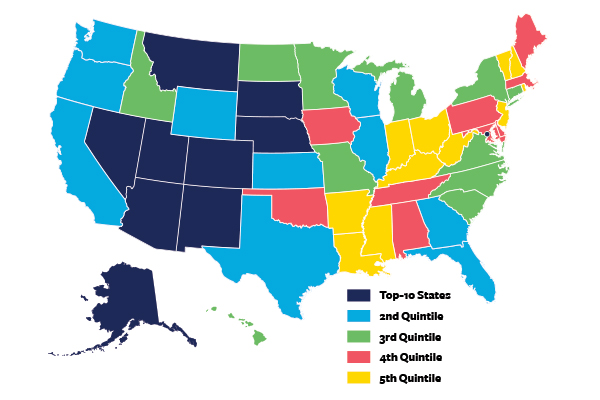Founders of successful companies tend to exhibit personality traits that make them more socially engaging, creative and able to handle stress than nonentrepreneurs, according to new research from the University of Jena in Germany and The University of Texas at Austin.
Jena researchers Martin Obschonka, Eva Schmitt-Rodermund and Rainer K. Silbereisen, along with UT Austin Professor of Psychology Samuel Gosling, mapped the entrepreneurial personality structures in the United States, Great Britain and Germany, identifying regions where a feeling of entrepreneurial spirit is “most at home.” The research will be published in the Journal of Personality and Social Psychology.
The team analyzed the personalities of more than 500,000 U.S. citizens, in addition to approximately 20,000 German and 15,000 British citizens. The psychologists correlated their findings with economic data derived from various regions within each country.
In the U.S., entrepreneurial spirit — associated with personality characteristics such as being socially engaging, responsible, creative, able to handle stress, and at times uncompromising — was high in western states such as Colorado and Utah, and low in Rust Belt states such as Michigan and in Deep South states such as Mississippi. Researchers found substantial correlations between the geographic distribution of the entrepreneurial personality structure and the regional distribution of actual entrepreneurial activity, such as the number of startup businesses in a region.
The psychologists found similar results in Germany and Great Britain. Although there are no firm conclusions regarding the causes of these regional differences, one possible explanation might be found in the socialization processes within the regions, where prevalent “entrepreneurial values” are conveyed through parenting or social institutions.
“The Rust Belt has a long tradition in rule-driven mass production,” Gosling said. “It is therefore possible that this region supported nonentrepreneurial values more strongly, which in turn might have been reflected in a less marked entrepreneurial personality structure.”
The researchers conclude that the close connection between the distribution of the entrepreneurial personality structure and the economic clout of respective regions must be considered in future political and economic decisions.
Image caption: Map of state-level variation in an entrepreneurship-prone personality profile across the United States.
